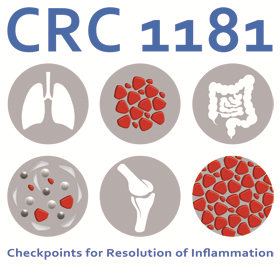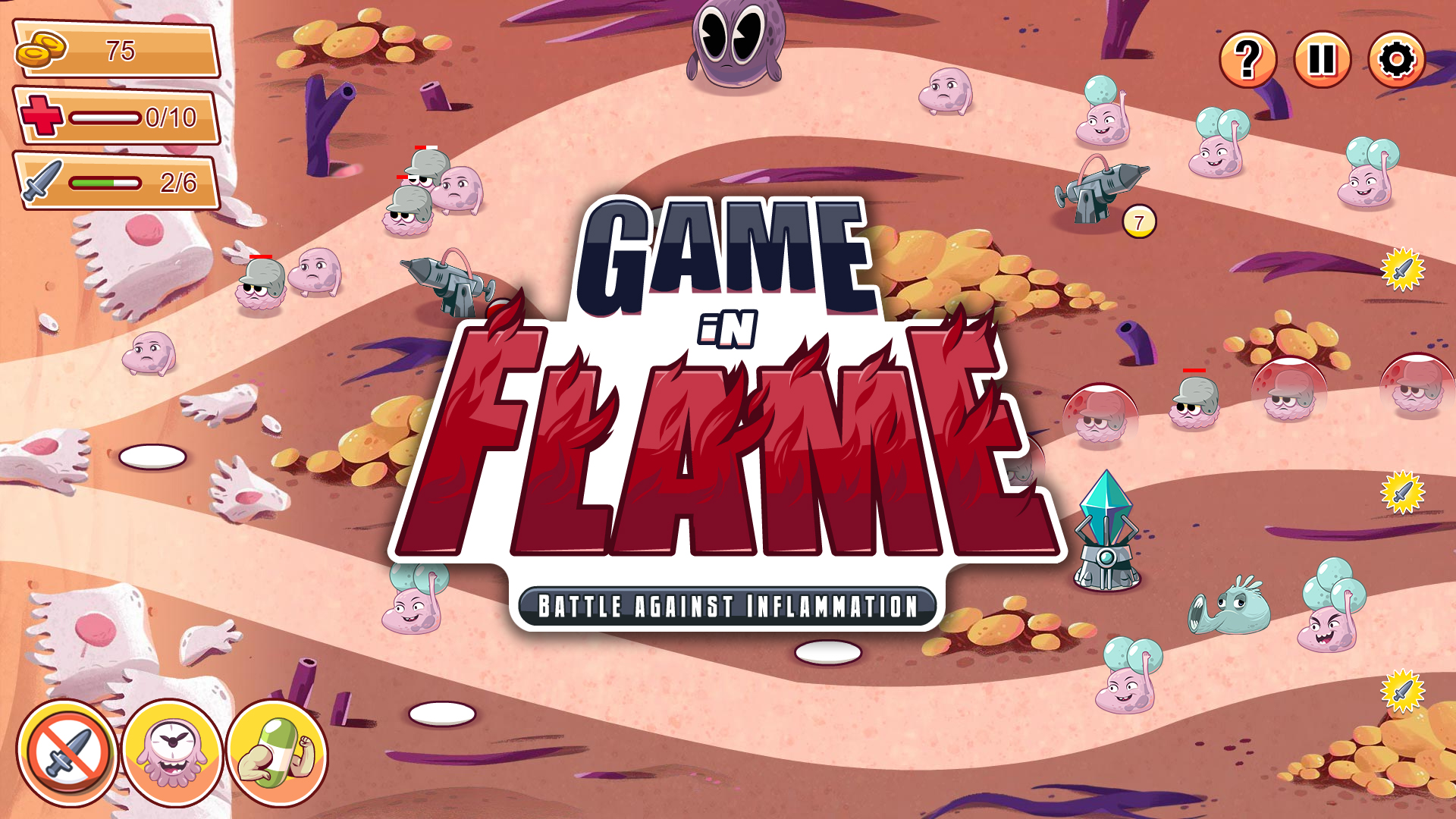Game In Flame launches new world
Eliminating molecular abnormalities in the intestine in a playful way
The Collaborative Research Centre (CRC) 1181 at the University Hospital Erlangen has launched the first update of the strategy game “Game In Flame – Battle Against Inflammation”. The player fights intestinal inflammation caused by diseases such as Crohn’s disease and ulcerative colitis. The epithelial barrier of the intestinal mucosa has now become permeable and allows viruses and bacteria to penetrate the intestinal wall, triggering an inflammatory reaction. The players shoot down misguided immune cells with drugs and learn about the molecular processes and treatment options of chronic inflammatory diseases in the intestine. The fight to eliminate the inflammation is free of charge at any time under www.gameinflame.de possible.
Millions of people, many of whom aged 20 to 40, suffer from chronic inflammatory diseases such as rheumatoid arthritis, Crohn’s disease or asthma. None of these diseases can be cured so far. On the positive side, more than half of the patients are no longer diagnosed with disease due to a targeted and regular medication intake. In order to reduce the risk of a new outbreak, it is important to have drug compliance and a changed lifestyle.
Health meets Game
The educational game Game In Flame – Battle Against Inflammation explains molecular inflammatory reactions and therapies that are essential for the development, maintenance and control of chronic inflammatory diseases in joints, intestines and lungs. After successfully combating the attack of gout in the articular world, players now learn about inflammatory mechanisms in the intestine. In six web-based mini-games, the inflammatory response must be brought under control. Defense cells, such as neutrophil granulocytes and T-lymphocytes, erupt, storm the intestinal mucosa and cause inflammation to blaze. From time to time they are accelerated by a sudden macrophage. The guns: Glucocorticoids and so-called biologics, e. g. TNF blockers and a few other special weapons that specifically inhibit the inflammatory reaction.
During the game, the measurement of the inflammation activity shows whether every single mission is successful. Only with a strategically wise placement of the artificially produced immunomodulating drugs is it possible to keep the degree of inflammation low. In order to combat the different cells with the appropriate weapon, the “Immuxikon” offers the player information about the strengths and weaknesses of the cells and drugs in the body and in the game at any time. In addition, the professor gives positive feedback or suggestions for improvement before and after each level.
Game In Flame – Battle Against Inflammation “was developed within the framework of the SFB 1181 in order to increase the knowledge of the affected persons about the molecular processes and to present the latest research results from inflammation research to all interested parties. The SFB 1181 “Switching Points for the Dissolution of Inflammation” led by the Department of Internal Medicine 3 – Rheumatology and Immunology (Director: Prof. Dr. univ. Georg Schett) at the University Hospital Erlangen of the Friedrich-Alexander University Erlangen-Nuremberg was established in 2015 by the German Research Foundation (DFG) in order to find answers to the question of why inflammation in chronic inflammatory diseases cannot be switched off and damages the body.
Further Information
Sandra Jeleazcov
Phone: 09131/85-39109
sandra.jeleazcov@uk-erlangen.de

